Inflamed gum - what to rinse? Antiseptics and anti-inflammatory agents
Than to rinse or gargle a mouth if the gum has inflamed? We'll figure it out. Most of the funds intended for rinsing the oral cavity on the background of gum disease are divided into antiseptic and anti-inflammatory drugs. Antiseptic agents primarily affect pathogenic bacteria that cause inflammation. Anti-inflammatory drugs almost do not affect bacteria, however, they can reduce inflammatory reactions.
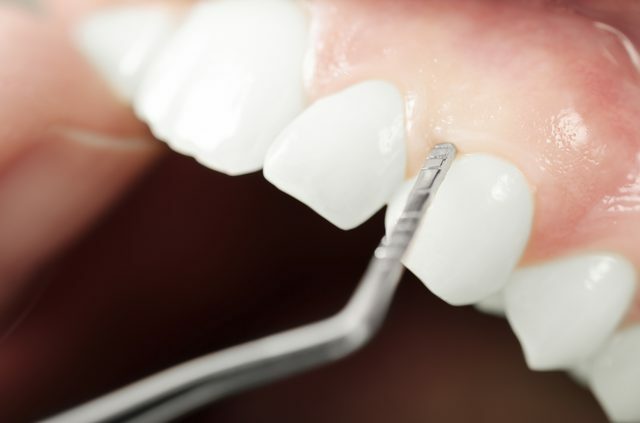
So, the gum inflamed - what to rinse?
With gingivitis and periodontitis
With gingivitis and periodontitis, both types of agents can be used, although antimicrobial agents will still be more effective. But in the event that a person develops an inflammation of the hole in place of the removed tooth, it is necessary to use exclusively antiseptic means, for example to perform the rinsing procedure "Chlorhexidine".
If the gum inflamed than rinsed? This is a common question.
Antiseptics
Most commonly dentists are prescribed such rinsing agents as "Chlorhexidine" and "Miramistin".These drugs are professional drugs that have a pronounced antimicrobial effect. Indeed, it is because of pathogenic microorganisms of plaque, as a rule, and there is inflammation of the gums.
"Chlorhexidine"
"Chlorgesidin" is sold in pharmacies without a prescription, this medicine costs about twenty rubles per package. This drug is the most effective tool, which has an excellent antimicrobial effect. Rinse them should be after a thorough hygiene of the mouth for one minute. Do this best two or three times a day. This drug can be used if the gum inflamed. What to rinse, do not know everything.

Miramistin
Miramistin is also sold without a prescription. Its cost starts from two hundred rubles for one bottle, which contains 150 milligrams of funds. In terms of its antimicrobial effect, "Miramistin" and "Chlorhexidine" are identical, although the second remedy, unlike the analogue, is effective against herpes viruses. In addition, it can be used in the presence of herpetic stomatitis.
Which antiseptic products should not be rinsed?
In such cases, do not apply to the use of hydrogen peroxide. Treatment of gums with this substance is possible, but only at a dentist's appointment. And this is done solely as part of complex treatment, and not in the form of a fixed asset. Peroxide is used for washing periodontal points. For this, peroxide is collected in a syringe, then the edge of the needle is broken off, and its blunt end is inserted into the periodontal point, which is washed under pressure. As a result of such manipulation, all pus and infection are washed out, including.
Independently this procedure at home can not be performed, and any attempts can end badly. So rinse your mouth with hydrogen peroxide is completely useless. During this rinse, peroxide does not fall right on the affected gum, but only bathes the mucous membrane. In addition, the dissolved peroxide is absolutely ineffective. Its concentration should be three percent.
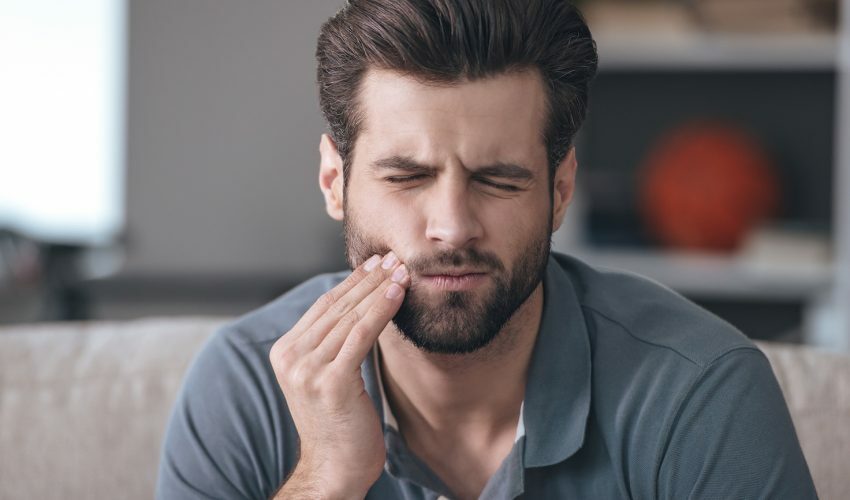
Rinse with anti-inflammatory drugs
When the gum has inflamed, rinse with salt is very useful. Anti-inflammatory drugs generally have a slight antiseptic effect on certain microorganisms. True, they have a fairly good effect on certain stages of the development of inflammation and contribute to a decrease in the severity of such reactions. It should be borne in mind that most herbal medicines that have an anti-inflammatory effect will contain alcohol, which is required for extraction in the production.
One such tool is "Stomatophyte."Instructions for use for this tool are given below. This drug is a highly concentrated tincture, prepared from herbs. It can be used in complex therapy of gingivitis, as well as periodontitis. The course of treatment is from ten to fifteen days. Before rinsing the product diluted in a ratio of one to five. According to the instructions for use, "Stomatophyte" contains alcohol. It is sold without a prescription. The cost of the bottle starts from two hundred rubles.
"Tantum Verde" contains benzydamine hydrochloride in its composition. This drug has a pronounced anti-inflammatory effect. Release it in the form of a spray, tablets, and in addition - a solution for rinsing. To gargle gums, it is a solution that needs to be diluted before use."Tantum Verde", like the previous product, contains alcohol. The course of treatment should not exceed ten days. Apply it three times a day. The cost of one bottle is about three hundred and fifty rubles.
If the gum has inflamed during pregnancy, than rinse?

"Chlorophyllipt" can be used by diluting with warm water. This drug got its name due to its main component - the plant pigment chlorophyll leaves of eucalyptus. However, experts give a greater preference to the above drugs, rather than this, since it has a negligible effect. The cost of one bottle starts from three hundred rubles.
When the gum has inflamed, rinse with soda is very effective.
You can prepare solutions yourself to rinse your mouth. What kind of herbs to rinse with inflammation of the gums? For these purposes, you can use eucalyptus, sage and chamomile - they are all perfectly suited for the removal of inflammation. However, it should be borne in mind that such solutions will contain a large number of pigment components, which quickly stick to the teeth.
As a result of their application, a film can form on the teeth, to which various microorganisms can be easily adhered. This effect can lead to an increase in plaque, and in addition, a hard stone. By the way, it is necessary to emphasize that the oak bark for gums is the worst choice, since most tannins will be present in such a solution, so the teeth will darken against the background of its application very quickly.
Reasonable alternative to herbal decoctions can serve as solutions, which were written above. Also suitable are special elixirs made from medicinal plants. Such rinsers contain in their composition plant extracts, but they are devoid of any pigment substances, so they will be absolutely safe for the teeth. Apply them all year round. But it is important that such an elixir contains only extracts of plants, without any antibacterial additives like "Triclosan".
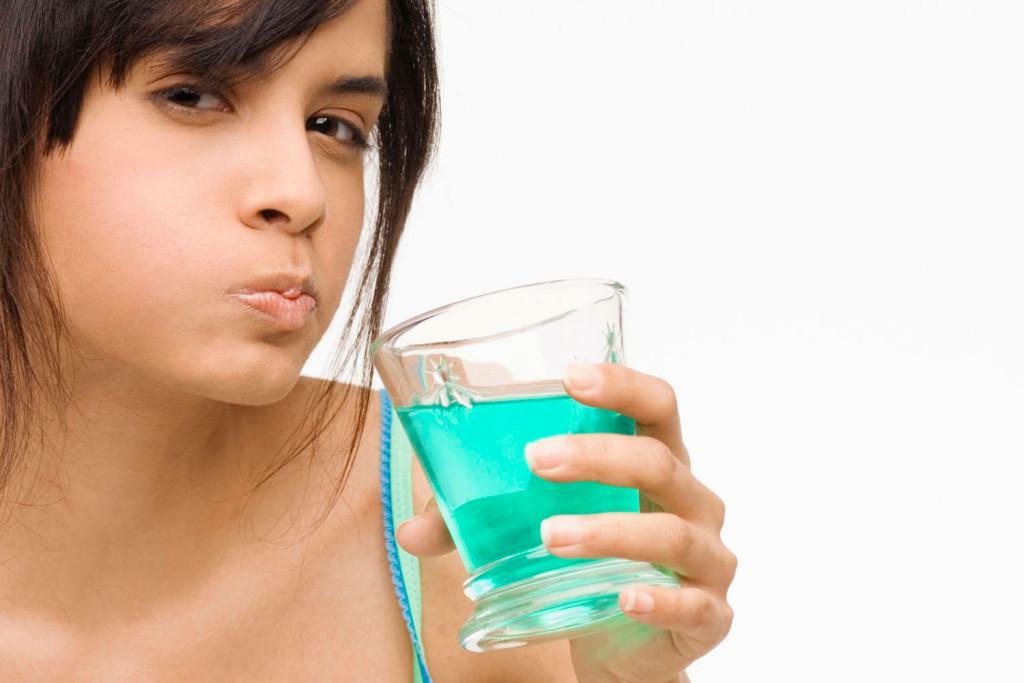
Toothpaste-based herbs
To date, there are excellent anti-inflammatory toothpastes that contain high-performance ingredients, including plant-based. Such pastes can be an excellent addition to antiseptic and anti-inflammatory mouth rinses. Such pastes help people cope with the bleeding gums and their swelling.
When mouthwash can be ineffective?
Antiseptic rinsing of the oral cavity on the background of gum disease is only an auxiliary tool and can not cure the existing inflammation on its own. Gums are most often inflamed with the following two conditions:
- Periodontitis. This disease is an inflammatory process. Against the background of it at the root of the affected tooth there is a purulent inflammatory focus. This pathology is a consequence of untreated caries and pulpitis. It manifests itself in the form of swelling of the gum or accompanied by a purulent deposition. Rinsing the mouth with periodontitis, as a rule, is ineffective, since the infection site itself lies deep in the bone tissue. In some situations, a small temporary effect can have baths based on salt and soda. They influence the inflammatory process in the form of infiltration and pus, but they do it insignificantly, so you should not rely on them.
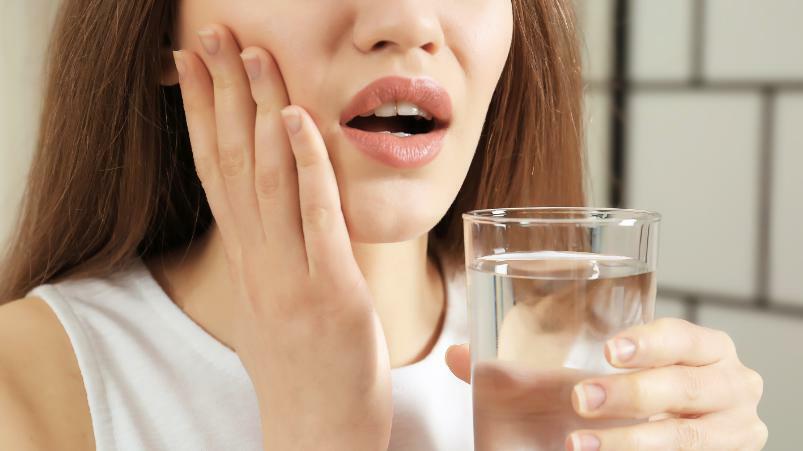
- Gingivitis is also an inflammatory gum disease, in which the main symptoms are pain along with bleeding gums, redness and bad breath. Further, dental mobility can be associated with gnotechenie from the area of periodontal pockets. It is not excluded and atrophy of bone tissue around the teeth. The causes of gingivitis are mild microbial plaque and hard gingival deposits. Thus, in its essence, the main cause of inflammation is poor-quality oral hygiene.
Antiseptic rinsing against the background of gum disease is actively used in the complex therapy of these diseases. But it must be borne in mind that this is only an auxiliary measure. The main treatment should be the removal of dental deposits along with the microbial component.
If the dental deposits have not been removed and the person begins to use antiseptic rinsing and uses anti-inflammatory gels, then, of course, he can shorten the symptoms of inflammation for a short while, but all these signs in the form of pain and bleeding necessarily return back soon,as soon as the use of medicines is stopped.
The special danger of using anti-inflammatory drugs and gels is that they only reduce the symptoms, masking the disease, and against the background of all this, inflammation is imperceptible to a person progressing. In TV commercials, various means for gums are very actively promoted, but they do not say that the main treatment should necessarily be the removal of dental deposits.
It should be remembered that the mild form of such a disease as gingivitis can imperceptibly develop into a severe stage of periodontitis in the event that a person incorrectly uses antiseptic rinses. Below we describe the algorithm for the treatment of gum disease, as well as the use of mouth rinses.
Than to rinse or gargle a mouth at a purulent inflammation of a gum or gingiva?
If the gum inflamed with pus, rinse can be performed with the following means:
- Decoction of the bark of oak. It contains tannins that have an anti-inflammatory effect, heal wounds and relieve swelling. The bark of the oak is washed, dried and ground before use. A tablespoon pour a liter of boiling water and insist for two hours.
- Baking soda. In a glass of warm water, dissolve 1 tsp.soda and rinse your mouth. Soda struggles with inflammation, swelling and redness, heals and disinfects wounds.
- Calendula and chamomile. The composition has a strong anti-inflammatory effect. Per liter of water you need to take 2 tbsp.l.dry pharmacy plants and pour boiling water. Let it brew, cool, strain and rinse your mouth.
- With olive oil. It is used for diseases of the gums with a bare radical region of the tooth. This contributes to the regeneration and compaction of tissues. The procedure is carried out in the morning on an empty stomach. A tablespoon of oil is collected into the mouth and lasts no less than five minutes. Do not swallow.
- St. John's Wort. It is considered a natural antibiotic. Take a tablespoon of raw materials for 1 cup of boiling water. The broth is very effective in purulent inflammations. The development of harmful microorganisms is suppressed, the pain subsides.
- Salt. You can rinse your mouth with salt water. It removes puffiness, inflammation and pain.
- Horseradish. The fucked horseradish is poured in water, mixed, and this composition rinses the mouth.
General recommendations
Traditional medicine can have a positive effect on the condition of the oral cavity. To date, there are many znacharian tips that help with inflammation of the gums. But it should not be forgotten that most of these recommendations only dull the pain. Therefore, no matter how good a grandmother's decoction or ointment cooked on herbs, it is always required, first of all, to appear to a specialist. After all, the disease is much easier to prevent than treat.
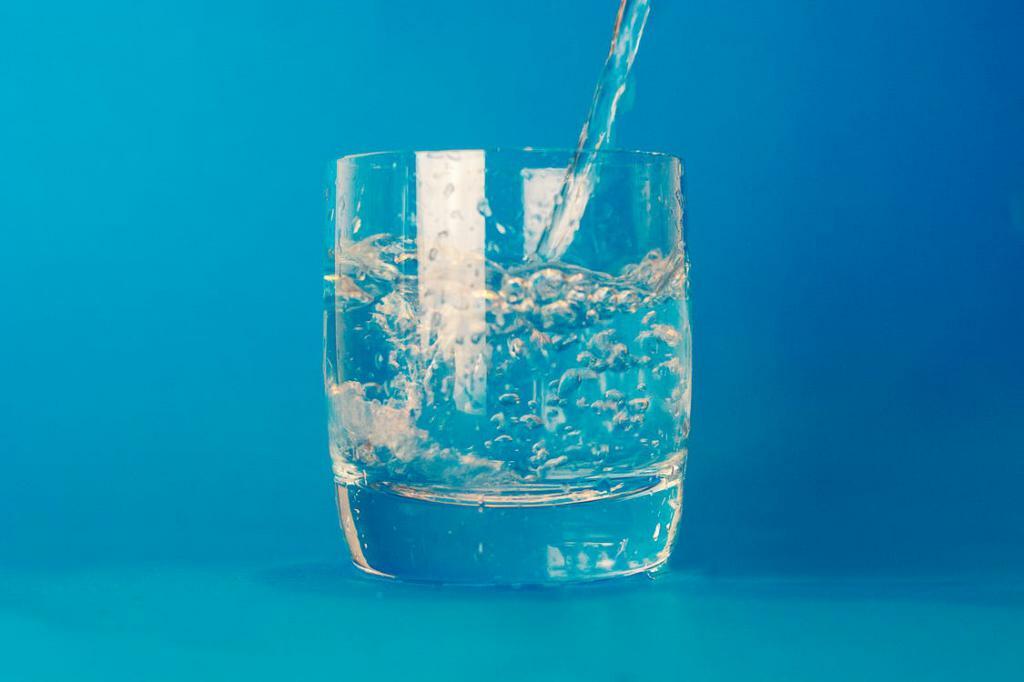
Inflammation of the gums should in no case be neglected, since it is dangerous not just for the teeth. For example, in the event that bacteria that arise from gum disease get into the blood, there may be any problems with the heart or other organs.
So, the gum inflamed, than rinse with gingivitis and periodontitis?
Antiseptic rinsing in the treatment of periodontitis and gingivitis
First of all, a person who wants his teeth to be healthy needs to eliminate the corresponding deposits. You can perform this procedure at the dentist. In this process, for example, ultrasound is used, which is completely painless. As a rule, after removing any deposits, the dentist cleans all periodontal pockets. This is done by using hydrogen peroxide under a certain pressure from a syringe. At the end of the procedure, an anti-inflammatory gel is applied to the gum. Further, the doctor prescribes anti-inflammatory treatment for home use, which, as a rule, includes the following manipulations:
- Antiseptic rinsing.
- Performing applications with anti-inflammatory gels.
- Treatment with antibiotics.
Conclusion
Thus, if a person often aching and bleeding gums, then before turning to the use of any antiseptic rinse, you need to eliminate the focus of the infection, and for this, you should definitely visit a dentist as soon as possiblethe gum or gingiva inflamed. What to rinse at home, we now know.
